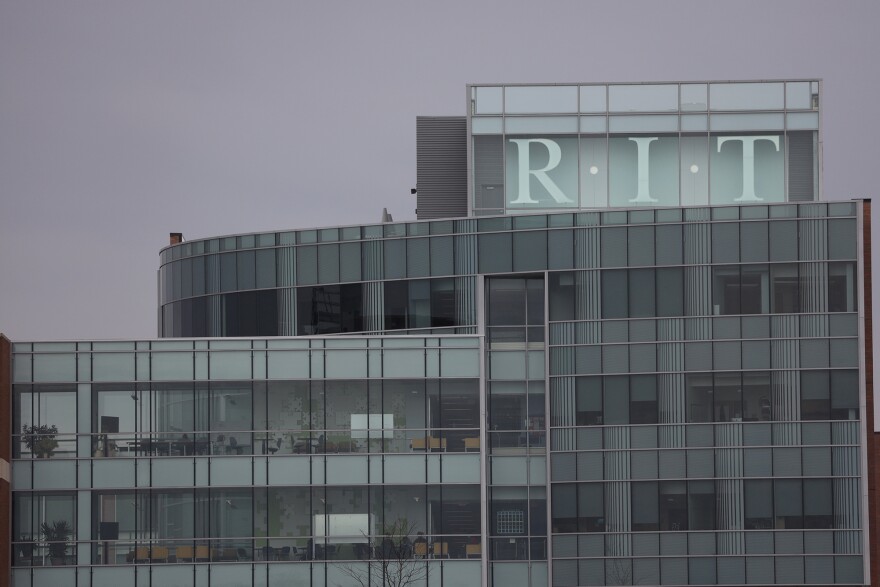Rochester Institute of Technology has an extensive safety plan ready for the start of the fall semester on Aug. 19.
It includes the usual steps -- reducing the number of people on campus, regular cleaning and disinfection, contact tracing -- as well as perhaps less expected measures like regularly testing the wastewater from student residence halls and apartments for signs of the novel coronavirus.
Philosophy professor Tim Engstrom acknowledged that the university has done an enormous amount of work to ready the campus, but he's still worried.
"I think the big anxiety is that this is all dependent upon managing behaviors -- student behaviors while on campus, while off campus, that really aren't entirely manageable," he said.
Engstrom, who is vice chair of RIT's Academic Senate, said he and his colleagues know that COVID-19 will be on campus. The question is to what extent.
"This is not a fascist state and we're not recommending it become one," he said, "but one of the challenges is that people can move where they want, when they want and the results of that are going to be very, very problematic."
Every day, whether they’re on campus or not, faculty, staff, and students will be required to fill out an online symptom check list.
They will also have to provide evidence of a negative coronavirus test before returning to campus. Students coming from a COVID-19 "hot spot" will have to be tested again once they get to campus.
Those who test positive will be told to quarantine.
But Engstrom still has questions. Among them: How can RIT have any control over students going to campus parties or off-campus gatherings? Can or will the school monitor quarantined individuals to ensure their compliance?
He said it's critical to have open, honest conversations between faculty and administration, where faculty feel that they are part of the decision making.
Engstrom and his colleague, Academic Senate chair Clyde Hull, said this kind of dialogue has been ongoing.
In fact, Hull said it's already resulted in some changes. Initially, he said, faculty members were told were told 80% of classes would be held on campus, and 20% of classes would be held remotely.
But not everyone was comfortable with that.
"I think faculty in general felt coerced," said Hull. "Now that the 20% rule has been relaxed and faculty are being more listened to, I'm not as sure that faculty are pushing as hard for it because now they have the autonomy; they can decide for themselves."
Now, at least 35% to 40% of classes may end up being taught online, Engstrom said, simply to accommodate faculty members who have health conditions that put them at risk.
That's not necessarily a negative.
Hull, a professor of management at the Saunders College of Business, said classrooms have been equipped with streaming technology so students who are under quarantine or don't want to be there in person can join the class remotely.
"Imagine the educational possibilities," he said. "RIT has campuses in China and Croatia and Dubai. Assuming you work out the time zone issues, you could have a class where you have students in all those campuses in one class together."

At the University of Rochester, Amy Lerner, co-chair of the Faculty Senate, said faculty members have been given the flexibility to design their classes based on what makes sense both academically and with health and safety in mind.
"For the portions of my class that can be adequately delivered remotely, that's the way I'm going to do it," Lerner said. "If they don't need to be in the classroom, I won't bring them into the classroom."
Lerner is a professor of biomedical engineering, a field that does require some hands-on, in-person instruction.
She said faculty are still working out a process where anyone who is wary of coming to campus can raise their concerns.
"I don't know yet if all of them will be accommodated," she said, "but I do feel confident that our administration is aware that some people will be concerned and will be listened to."
Like RIT, the University of Rochester has laid out a comprehensive reopening plan that involves surveillance, testing, and tracing.
With the fall semester scheduled to start on Aug. 26, Lerner said she is both nervous and optimistic.
"I think this is one of the biggest challenges for higher education any of us have ever seen," she said. "I think it will require the greatest creativity that we can bring to task."



